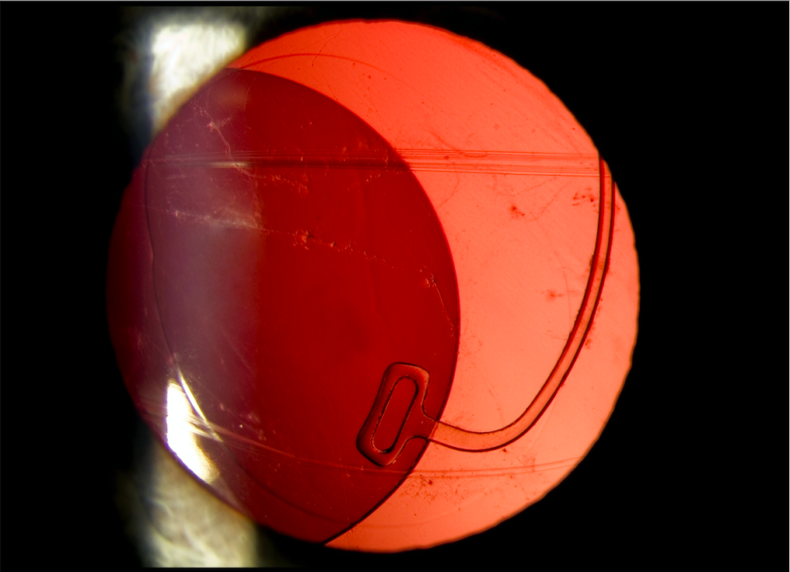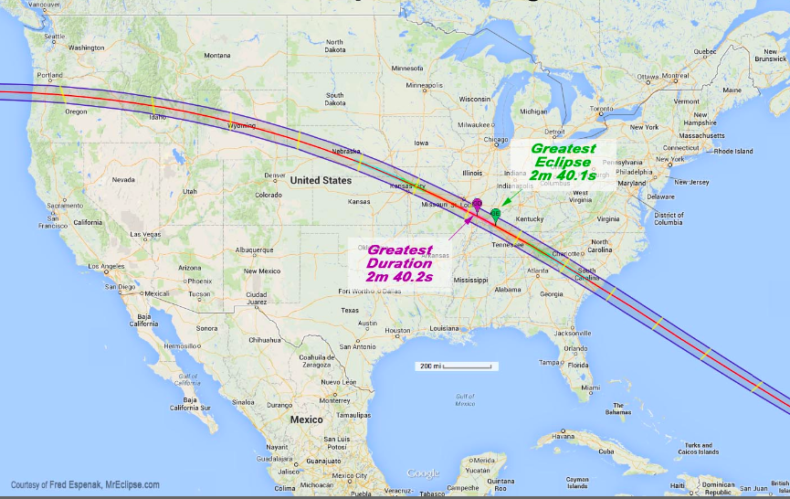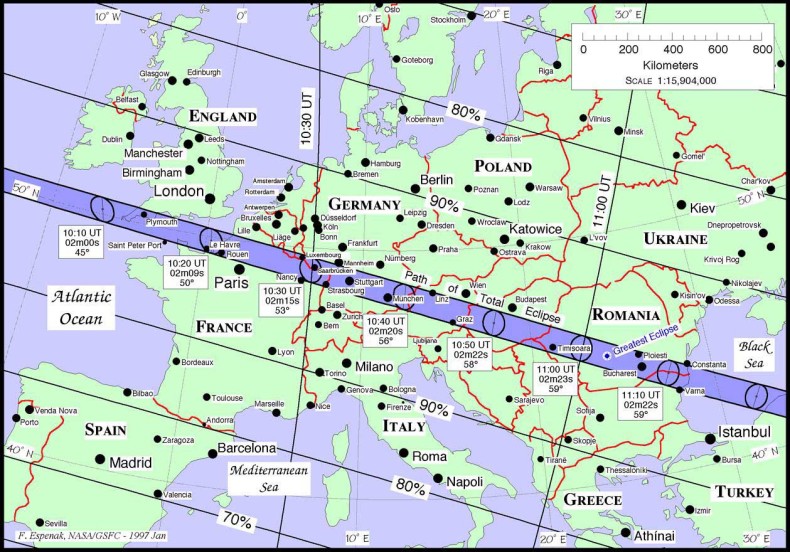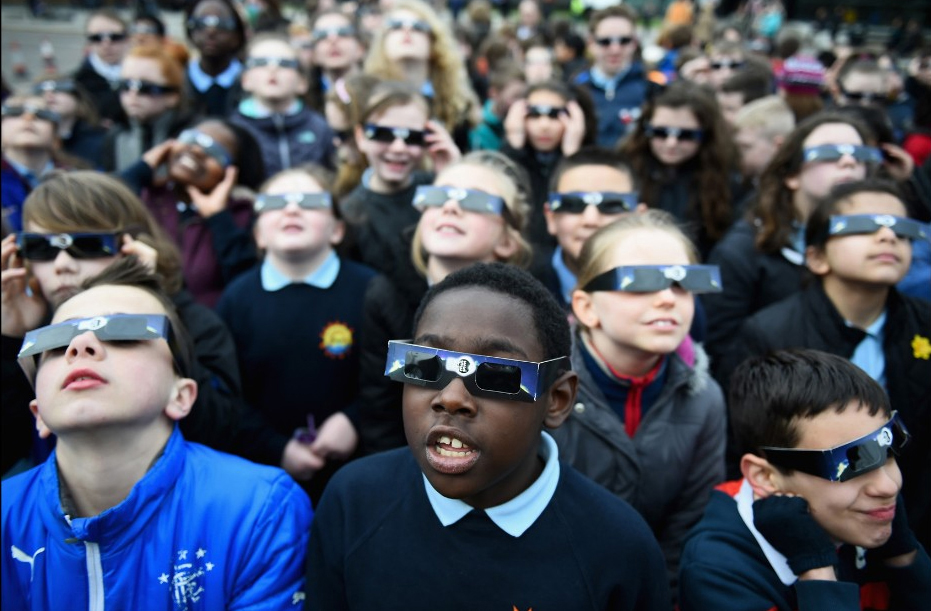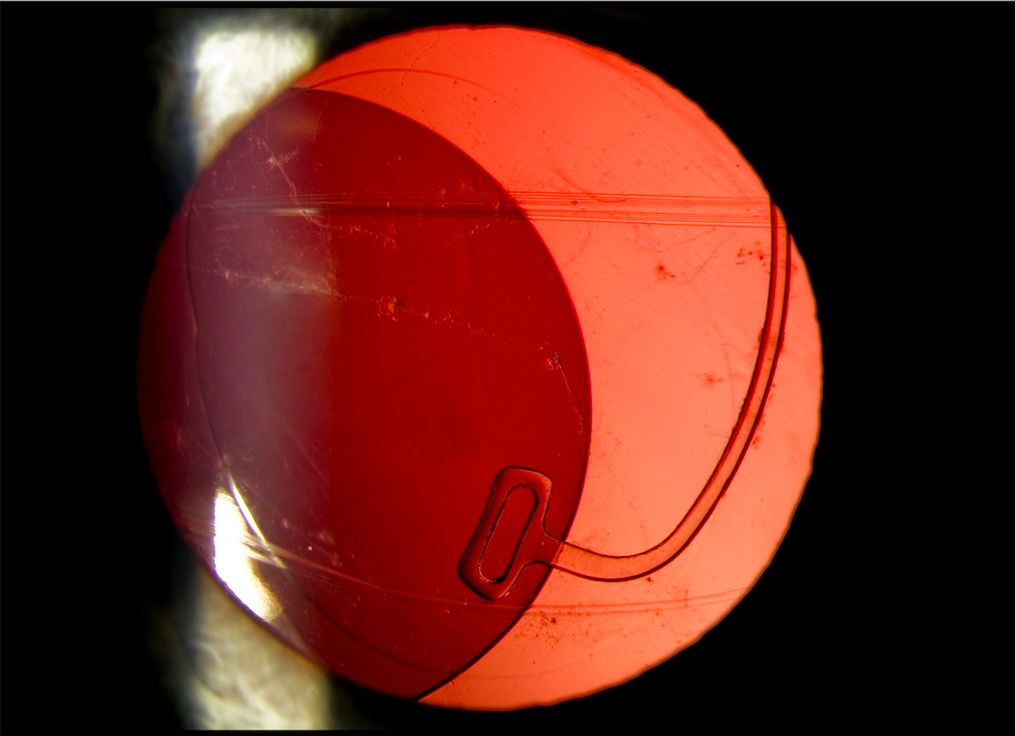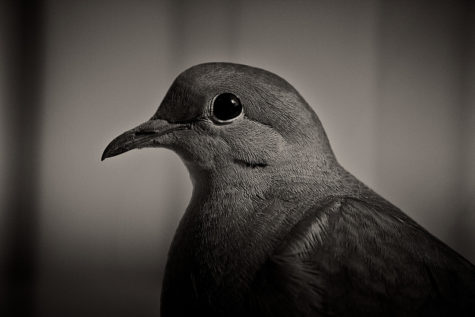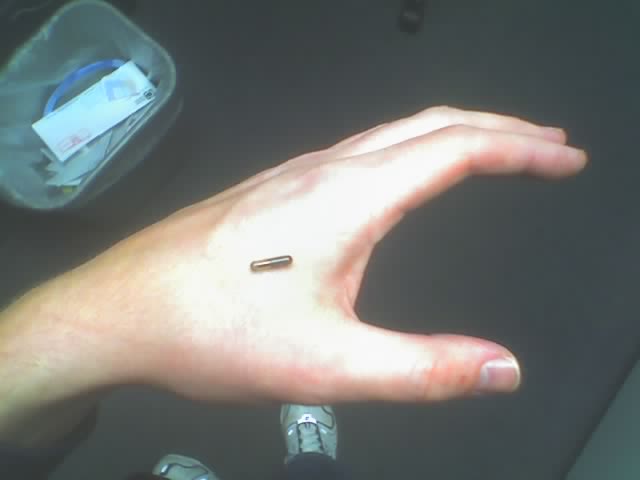Jenny watches the married, loving mourning doves. Then Jenny’s all-but-feral dog kills the dove wife. The dove husband perches above her grave and calls and calls, no answer. So then what? Well what do you think.
And with Erik’s post, LWON begins Eclipse Week. Erik polls the ancient Vikings, Maya, Mexica, Hindus, and Christians, and not one of them had anything good to say about eclipses. My personal favorite is the Vikings.
I’ve never seen a total eclipse and won’t see this one either. I get only a partial one and I’m not even going to look up, I’m going to look down. Because last time I did that, I had a flat-out epiphany.
Christie and her dad have neither one of them seen a total eclipse. But they’re going to be together and right in the path of this one. And they’ve got some good reasons to be doing likewise.
Richard, on the other hand, is an old hand at total eclipses. The last one he was on a cruise ship in the Black Sea, poor guy, taking notes. What he chiefly remembers was the fast shadow, the chill, and the silence.
